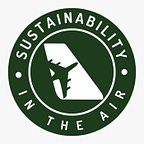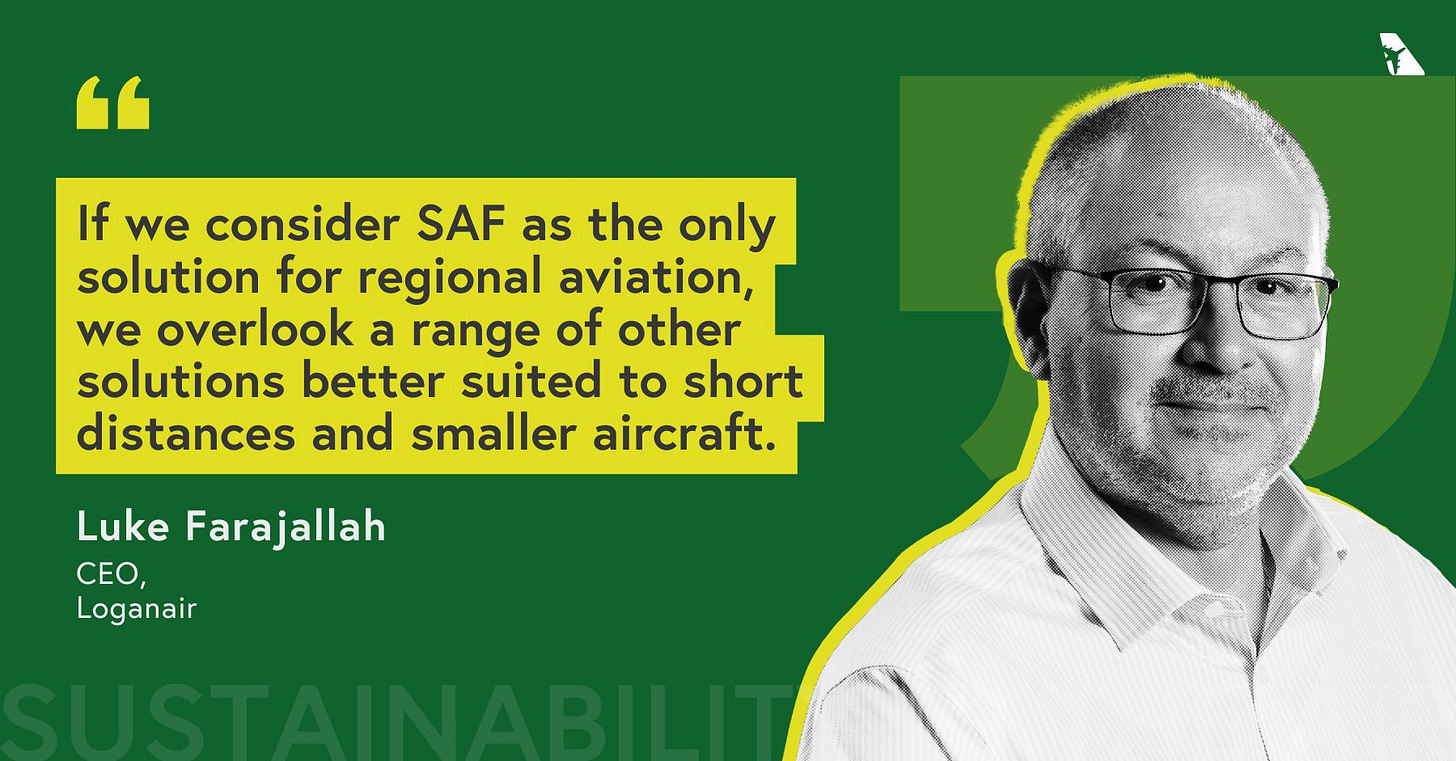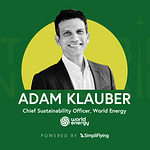In this episode of our 'Sustainability in the Air' podcast, Luke Farajallah, CEO of Loganair, speaks with SimpliFlying CEO Shashank Nigam about how the UK's largest regional airline is positioning itself for a sustainable future.
Based in Scotland, Loganair connects some of the world’s most remote destinations, including the world’s shortest commercial flight and the only scheduled service to land on a beach. Rather than waiting for industry giants to lead the charge, Farajallah argues that regional carriers are better positioned to pioneer the first fully sustainable commercial flights.
Here are the key highlights of the conversation:
Loganair's unique mission and 63-year heritage (0:21)
The world's shortest flight and lifeline services (2:19)
Balancing growth versus sustainability priorities (7:18)
Multi-technology approach: "fishing in a big pond" (12:02)
Partnerships with Heart Aerospace and ZeroAvia (16:24)
World's first hydrogen-powered commercial flight plans (21:12)
Water vapour sensors and contrails research (25:54)
Rapid Fire! (39:44)
Keep reading for a detailed overview of the episode.
Why Loganair’s “fishing in a big pond” philosophy matters
The aviation industry's path to net-zero emissions has largely focused on major carriers and long-haul operations, but Farajallah presents a compelling case for why regional airlines should lead the charge. His argument rests on both technological practicality and operational flexibility that smaller carriers possess.
Loganair's "fishing in a big pond" philosophy reflects this advantage. Whilst major airlines often face pressure to commit to single technologies for fleet standardisation and cost efficiency, regional carriers can diversify their bets across multiple emerging technologies. This approach acknowledges the uncertainty surrounding which sustainable aviation technologies will ultimately prove most viable.
Economic realities also favour regional innovation. Sustainable aviation fuel (SAF), currently the industry's primary decarbonisation tool, presents significant challenges for regional operations. Farajallah explains:
"Sustainable aviation fuel at the moment is not being produced in the UK to the quantities it will be required. It's about four times more expensive than conventional aviation fuel at the moment... And it's also being imported from Europe. So, there's a carbon footprint associated with it being brought into Europe."
For shorter routes and smaller aircraft, the technology options extend beyond SAF. Electric, hybrid-electric, and hydrogen propulsion systems all become viable for regional operations in ways that remain impractical for larger aircraft on longer routes. This technological flexibility positions regional carriers as natural testing grounds for new innovations.
Five ways Loganair is redefining sustainable aviation
1. Multi-technology partnerships
Rather than betting on a single technology, Loganair has strategically positioned itself across the sustainable aviation landscape. The airline is working with Heart Aerospace on hybrid-electric aircraft development, partnering with ZeroAvia on hydrogen propulsion, and maintaining SAF commitments whilst exploring other alternatives.
The Heart Aerospace partnership focuses on a 30-seat hybrid-electric aircraft that combines conventional engines with battery-powered propulsion. Meanwhile, the ZeroAvia collaboration explores hydrogen fuel cell technology, with manufacturing facilities conveniently located near Loganair's Scottish headquarters.
This diversified approach reflects Farajallah's conviction that regional airlines shouldn't be constrained by the same technological limitations as major carriers.
"When I talk about fishing in a big pond, I think we shouldn't exclude anything. I think we should be open-minded towards everything," he explains.
2. Real-world testing of breakthrough technologies
Loganair's unique route network provides ideal testing conditions for emerging aviation technologies. The world's shortest commercial flight between Westray and Papa Westray in Orkney — lasting just 60 to 120 seconds depending on wind conditions — offers a perfect real-world environment for technology validation.
Plans for the world's first hydrogen-powered commercial flight will utilise this route with a modified Britten-Norman Islander aircraft.
"If you're going to test something in a real environment, the world's shortest commercial flight is a real environment," Farajallah argues.
This approach recognises that laboratory testing, whilst essential, cannot replicate the complexity of commercial operations. By conducting trials on actual passenger services, Loganair can provide valuable data on both technical performance and customer acceptance.
3. Scientific research contributing to industry knowledge
Beyond operational innovations, Loganair is contributing to climate science through its partnership with the UK Met Office. The airline is fitting water vapour sensors to its Embraer 145 fleet to study contrail formation and environmental impact; the research will benefit the entire industry.
The equipment adds 130 kilograms to each aircraft, generating additional fuel burn that many airlines would reject on cost grounds. However, Farajallah takes a longer view:
"It's the right thing to do because we should be contributing towards solutions that improve the environment. So number one, there's a bigger game here rather than 50 kilos of weight."
This willingness to absorb short-term costs for long-term environmental benefits exemplifies the leadership role that Farajallah envisions for regional carriers in sustainable aviation.
4. Community-centred sustainability initiatives
Not every emissions reduction comes from cutting-edge aircraft or fuel. At Loganair, seemingly small choices — like sourcing Scottish water for onboard service or keeping maintenance work within the UK — are part of a larger commitment to reducing transportation-related emissions across the supply chain.
This focus on operational responsibility aligns with the airline's fundamental mission of serving communities that would otherwise lack air connectivity. "If you lose Loganair and our connectivity and our services, there's nobody else out there who can do it," Farajallah emphasises.
The integration of sustainability criteria into all business decisions represents a mature approach to environmental responsibility. Rather than treating sustainability as a separate initiative, Loganair evaluates every decision against safety, operational, financial, and environmental criteria.
Farajallah makes his ambitions clear:
"My strong sense is that the first fully sustainable commercial flight should be a regional airline. And therefore, as the leading regional airline, it should be Loganair. That's my determination."
5. Mandatory carbon offsetting
Unlike most airlines that offer voluntary carbon offset programmes with minimal uptake, Loganair includes a £1 charge on every ticket for its Green Skies programme. This approach eliminates decision fatigue whilst ensuring universal participation in environmental initiatives.
The customer response has been remarkably positive.
"We get very little negative feedback about that. Very little resistance, if any," Farajallah notes. "I can't remember the last time somebody fundamentally disagreed or complained, which means the education of why this is important is getting through."
The programme funds local environmental projects across Scotland, creating connections between passengers and the communities they visit. One example includes the Hoy Heritage Centre in Orkney, where Loganair's contribution helped convert a 19th-century church into a community hub whilst reducing energy costs and increasing event hosting capacity.
Ultimately, Loganair’s ambitious approach, coupled with diversified technology partnerships and real-world testing capabilities, positions Loganair as a genuine pioneer rather than a follower waiting for industry giants to lead the way.
Get our new book
Our new book Sustainability in the Air: Volume Two is now available for purchase on Amazon. Learn more about the startups, strategists, and sceptics working to close the gap between growth and green ambition.
‘Sustainability in the Air’ is the world’s leading podcast dedicated to sustainable aviation. Through in-depth conversations with top aviation leaders, we break through the clutter and provide a clear roadmap for a net-zero future.













